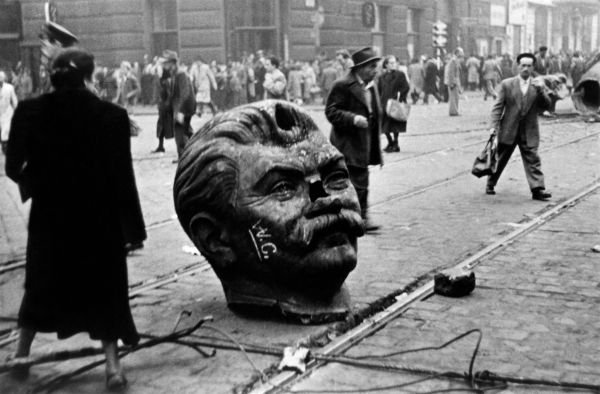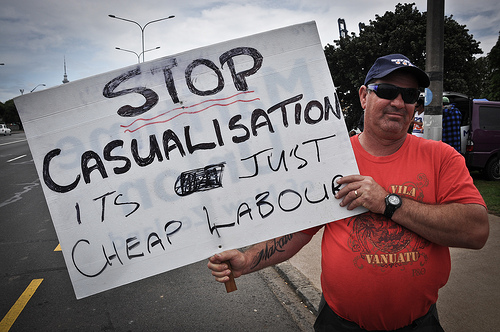
Originally published here, reprinted in February Spark.
The Thorton family: “They want drones when we are actually parents”
Shaun Thorton, 43, drives a straddle at the Ports of Auckland where he has worked for 18 years. He met his wife Leah at the port where she worked before becoming a fulltime mum looking after their four kids: Ben (9), twins Max and Amy (5) and Nina (4).
“We want predictability so we can have a family life,” he says. “We only get one weekend off every third weekend meaning I work 35 weekends in the year. I’m striking for the kids.” Continue reading “Why wharfies are striking in their own words”
The Dialectical Relationship between Work and Mental Health: part 2

This article is the second of a four-part series by Polly Peek. The first part can be read online here or in the December-January issue of The Spark. ‘Consumer’ in this article refers to a person who currently or has previously used psychiatric services. ‘Bourdieuian’ refers to the theories developed by French Sociologist Piere Bourdieu and ‘taangatawhaiora’ is a Te Reo term that translates to ‘person seeking well-being’.
The instrumental value of employment is that it creates opportunities for mental health consumers to access additional resources to improve their health and wellbeing such as financial resources and supportive social networks. From a Bourdieuian perspective, therefore, employment allows people with experience of mental illness to beneficially increase their social and economic capital. The benefit of these resources has been expanded on in research exploring resilience factors for mental health. One example of this is a 2002 Ministry of Health publication which cites economic security as being crucial for well-being as well as the availability of opportunities. Because of the lower-than-minimum-wage rate of benefits in New Zealand society and difficulties attaining work without experience, the mental health benefits that come from economic security and accessibility of opportunities is likely to disproportionately benefit those in paid work in comparison to the unemployed.
Continue reading “The Dialectical Relationship between Work and Mental Health: part 2”
Operation 8 trial draws to a close: Drop The Charges
 After nearly 5 years of painstaking legal wrangling, and over 100 years of attacks on Tuhoe, the Operation 8 trial is finally due to start in February. Only four, of the original 18 defendants, will be facing charges.
After nearly 5 years of painstaking legal wrangling, and over 100 years of attacks on Tuhoe, the Operation 8 trial is finally due to start in February. Only four, of the original 18 defendants, will be facing charges.
The raids of October 15th 2007, targeting Tuhoe and radical supporters, are etched into national consciousness. Police officers blockaded the roads leading into the Ureweras, with squad cars and traffic cones along the historic line of confiscation. They broke windows and smashed down doors at Wellington’s 128 Radical Social Centre.
They used terror legislation to justify these attacks, but did not charge any of the defendants with terrorism. Their tactics were designed to demonstrate the power of the capitalist state, installed and maintained through confiscation. Local and global solidarity actions showed the defendants they were not alone.
Tuhoe never signed the Treaty of Waitangi. Their radicalism, embodied particularly in Tame Iti, consists of their demand for self-determination in a territory where they comprise the majority.
On February 13th, the four remaining defendants will face trial at the Auckland High Court, and supporters will mobilise to conduct solidarity actions.
The Meaning of Sonny Bill Williams
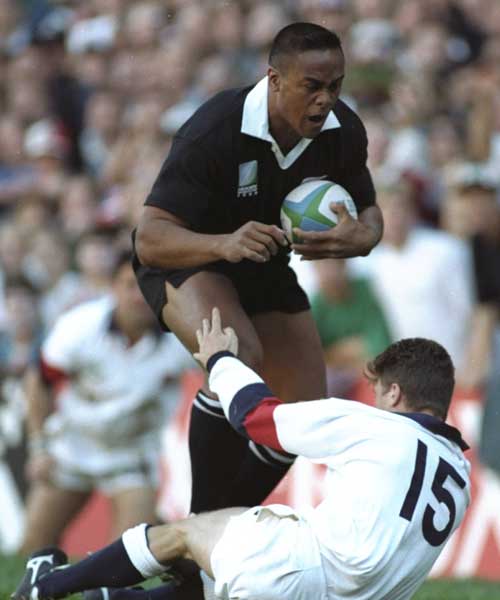 The first international Rugby superstar with a wider appeal and awareness than rugby fans was Jonah Lomu. While terms such as ‘greatest player ever’ ‘living legend’ etc. can be bandied about easily enough, it is generally agreed that the power and influence of Lomu on the international rugby arena was immense. His sheer power, pace and image shocked and awed the international sporting world. Like with many sportspeople defined as ‘The Greatest’ it is not just the records that carry weight, it is the extraordinary effect of ‘the idea’ of the player on the wider viewing public that lifts someone above the shoulders of their fellow competitors.
The first international Rugby superstar with a wider appeal and awareness than rugby fans was Jonah Lomu. While terms such as ‘greatest player ever’ ‘living legend’ etc. can be bandied about easily enough, it is generally agreed that the power and influence of Lomu on the international rugby arena was immense. His sheer power, pace and image shocked and awed the international sporting world. Like with many sportspeople defined as ‘The Greatest’ it is not just the records that carry weight, it is the extraordinary effect of ‘the idea’ of the player on the wider viewing public that lifts someone above the shoulders of their fellow competitors.
Sonny Bill Williams (or SBW for the many readers, who I’m sure pay little or no attention to organised sport) is the second player following Lomu who most clearly fits the bill of ‘Superstar’. Yet this is a player who has played for the All Blacks rugby team for only two years, failing in his attempt to attain a starting spot in the team to Ma’a Nonu. Boxing aficionado and parasite capitalist Bob Jones has described SBW’s capabilities in his boxing side project as being “He can’t box. …but that’s hardly surprising given his novice status.”[1]. In his most recent fight against 43-year-old gospel singing, sickness beneficiary, Alipate Liava’a, he couldn’t even score a knockout, cue Jones’ negative reaction. However as spectacle SBW is a Superstar. With his boxing match raising over $350,000 for the Christchurch earthquake.[2] Alongside his boxing efforts, his every move is debated and discussed, in a manner far greater and wider than that of either Dan Carter and Richie McCaw, two All Blacks players, generally acknowledged as two of the greatest players to have played Rugby Union in any country in any time.[3][4]
Continue reading “The Meaning of Sonny Bill Williams”
Occupying an impasse: learning from mistakes?
All great world-historic facts and personages appear, so to speak, twice… first as tragedy, then as farce.
-Karl Marx, 18th Brumaire of Louis Bonaparte
October 15th has a double significance in this country, as both the day of the 2007 invasion of the Ureweras, and the day the global ‘Occupy’ movement arrived here in 2011. On October 15th 2011 thousands were mobilised across the country; turnout in Auckland was particularly impressive, while the hundreds who showed up in other centres were largely new to ‘the usual suspects’ (such as myself.) Smaller occupations cropped up in New Plymouth, Marton, Invercargill and elsewhere, showing the resonance of this new political language.
Numbers have fluctuated since. Commentary by Socialist Aotearoa accuses the left of ‘vacillating,’ however the reality is that occupiers have vacillated in general; while Occupy Auckland mobilised thousands on its first day, its current battle with attempted eviction involves a relative hard core. We have to learn from this downward trajectory: what happened and why? Continue reading “Occupying an impasse: learning from mistakes?”
21st Century Stalinism and Anti-Stalinism
“Anti-Stalinism, by itself, is no program for common struggle. It is too broad a term, and it means different things to different people.”
-James P Cannon, American Stalinism and Anti-Stalinism
Recent shifts in our organisation are renewing historical questions. At Workers Power 2011, comrades from the International Socialist Organisation and Socialist Aotearoa noted that our organisation was revising its position on tino rangitaratanga, and advocated we also revise our position (or more accurately come to a position) on “Stalinism.” Over the last year Mike Kay has contributed Discussion Bulletins on the subject, noting continued disorientation in the wake of Stalinism. His latest IDB argues, “In 2012 we must begin the discussion on Stalinism in earnest. We also need to address why it is that comrades have not been forthcoming with substantial written replies to the IDBs tabled so far.”
In this spirit I take up the discussion of Stalinism.
Continue reading “21st Century Stalinism and Anti-Stalinism”
The Fighting Propaganda Group
Continuation of our discussion about communist organisation (On The Party Question and Demoralisation or Disorientation?)
Only he [sic] who can keep his heart strong and his will as sharp as a sword when the general disillusionment is at its worst can be regarded as a fighter for the working class or called a revolutionary.
Gramsci, Avanti, Piedmont edition, 24 September 1920
At the last Retreat, I raised the concept of the fighting (or “combat”) propaganda group as an appropriate model for the WP in current conditions. Whilst the idea seemed to meet with general approval, I haven’t had the chance to expand on it until now.
The WP now, and for the foreseeable future, needs to be a “fighting propaganda group”: an organisation whose chief concern is propaganda, but which conducts its propaganda while always immersing itself in and responding to the class struggle, and while always seizing every real opening for genuine agitation.
Continue reading “The Fighting Propaganda Group”
CMP/ANZCO dispute shows need for freedom to strike
By editors of The Spark
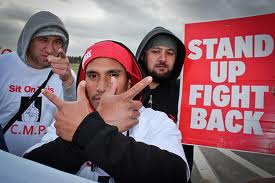 In late October 2011 over one hundred workers belonging to the New Zealand Meat Workers Union and employed at the ANZCO-owned CMP mutton processing plant in Marton, in the Manawatu area, were locked out by the company. The company was demanding that the workers take between 20%-30% losses of renumeration. The workers and their site organisers were not prepared to sign on to individual agreements and accept the cuts. Locking-out was a highly aggressive action from the company as lockouts are usually used as a retaliation to strike action. The workers hadn’t taken strike action but the company used locking-out as an ultimatum against those not prepared to accept the cuts. The lockout continued until December 23 when the workers voted to go back to work even though – we understand – they still faced some lesser conditions to those that existed prior to the lockout. The workers and site organiser involved are among the staunchest in the workers movement in the country, however ultimately the company was unable to be defeated.
In late October 2011 over one hundred workers belonging to the New Zealand Meat Workers Union and employed at the ANZCO-owned CMP mutton processing plant in Marton, in the Manawatu area, were locked out by the company. The company was demanding that the workers take between 20%-30% losses of renumeration. The workers and their site organisers were not prepared to sign on to individual agreements and accept the cuts. Locking-out was a highly aggressive action from the company as lockouts are usually used as a retaliation to strike action. The workers hadn’t taken strike action but the company used locking-out as an ultimatum against those not prepared to accept the cuts. The lockout continued until December 23 when the workers voted to go back to work even though – we understand – they still faced some lesser conditions to those that existed prior to the lockout. The workers and site organiser involved are among the staunchest in the workers movement in the country, however ultimately the company was unable to be defeated.
Continue reading “CMP/ANZCO dispute shows need for freedom to strike”
Post-revolution Egypt: An Inside Look from an Outsider's Eyes
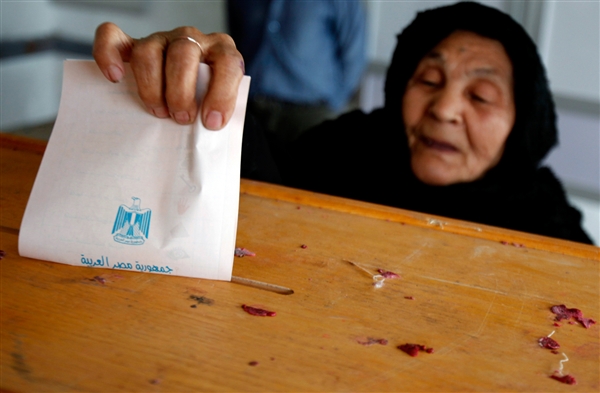 Nada Tawfeek is an Egyptian born activist currently residing in New Zealand. She wrote this first-hand account for The Spark after spending two months in Egypt; it again does not necessarily reflect a “party line.”
Nada Tawfeek is an Egyptian born activist currently residing in New Zealand. She wrote this first-hand account for The Spark after spending two months in Egypt; it again does not necessarily reflect a “party line.”
As the plane I was on approached Cairo, and I could finally see the pyramids after a good 24 hours of flying from New Zealand, I couldn’t help but wonder how different Egypt would be; whether it would already have changed or not. A part of me expected to step out of the plane to a brand new post revolution Egypt but the other part of me thought it would find the familiar hectic Egypt. Not long after leaving the airport I discovered that both my expectations were real. Although everything in Egypt looks the same as before the January revolution, the atmosphere is strangely different. Every radio station plays songs about the revolution and building a better Egypt, every Egyptian TV presenter now has a show about politics, the average Egyptian who most likely had no interest in politics a year ago could now talk about the different parties at length, and the closer the elections day got the more extreme this would seem.
The night before the Election Day was one of the most exciting days for many Egyptians since the revolution. Everywhere I went I heard young people talk about how they were incredibly proud that their generation got to witness a day like this, and older people talk about how this was the first time they had ever voted in their whole life. This day for many Egyptians was a challenge. Finally people felt that their voices were going to be listened to and that their vote would actually count, and people weren’t going to let this opportunity pass no matter how anxious they were. The fact that this was the first time most people were going to vote made the new experience one they were slightly scared of because no one knew what to expect. People were afraid that the old government and its supporters might have a plan in place, but the excitement overcame the fear.
Continue reading “Post-revolution Egypt: An Inside Look from an Outsider's Eyes”
Demoralisation or disorientation? Causes of the Split in the WP
This is part of an ongoing discussion among Workers Party comrades and doesn’t necessarily reflect an agreed position.
“Of course, even among the workers who had at one time risen to the first ranks, there are not a few tired and disillusioned ones. They will remain, at least for the next period as bystanders. When a program or an organisation wears out, the generation which carried it on its shoulders wears out with it. The movement is revitalised by the youth who are free of responsibility for the past.”
-Trotsky, The Transitional Program
The resignation of four senior WP comrades on the eve of our January 2011 Retreat probably came as a shock to most of the Party. Those comrades announced that they would abandon any claim to the Party in favour of setting up a theoretical and international solidarity focused blog. Ian Anderson’s discussion bulletin “On the Party Question” did a good job of analysing their collective statement of resignation. In this bulletin, I intend to further probe the reasons behind the split.
Continue reading “Demoralisation or disorientation? Causes of the Split in the WP”

